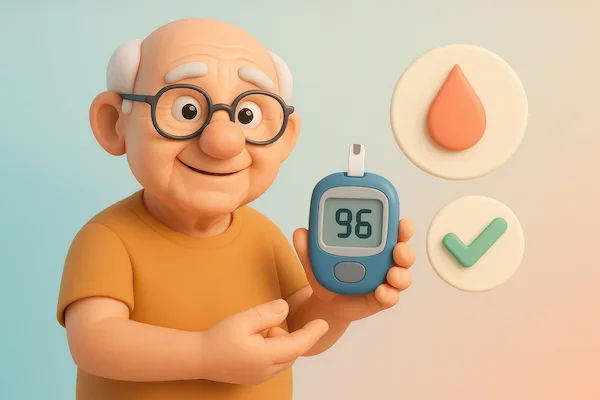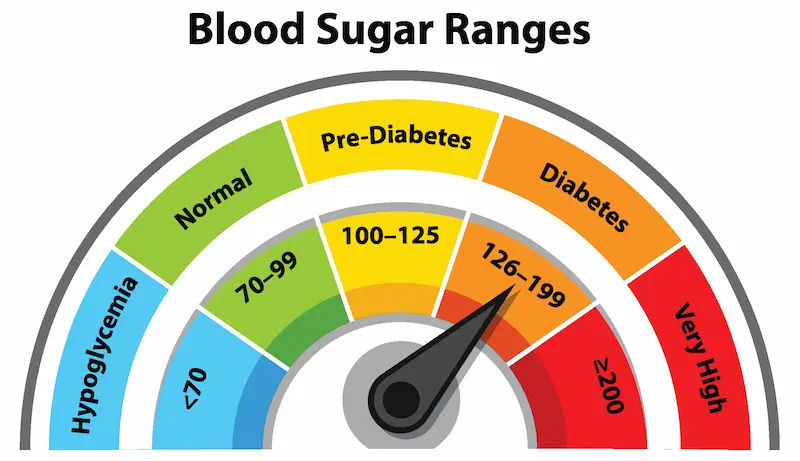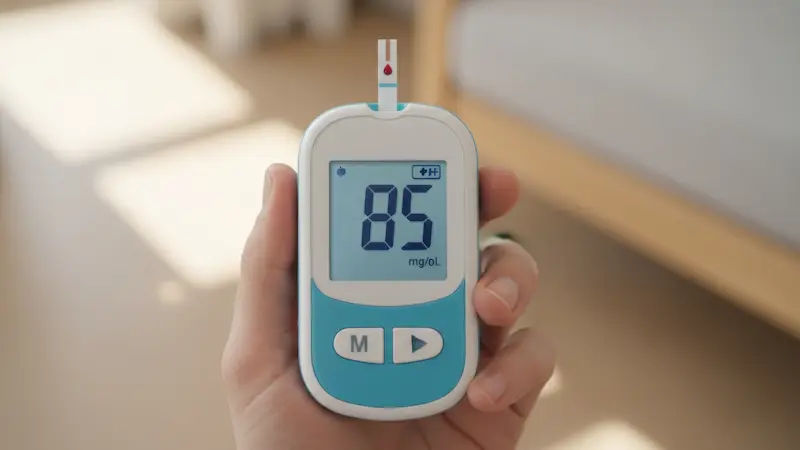How To Increase Amh Levels?
Learn effective methods to increase AMH (Anti-Müllerian Hormone) levels, including lifestyle changes, dietary tips, and medical treatments to support fertility.

Written by Dr.Sonia Bhatt
Last updated on 13th Jan, 2026

Introduction
If you’re trying to conceive or just keeping an eye on your reproductive health, you may have heard about Anti-Müllerian Hormone (AMH). AMH is a hormone produced by the ovaries that helps estimate ovarian reserve, the number of eggs you have left. Low AMH levels can be concerning, but the good news is that there are ways to improve them naturally.
In this article, we’ll explore what AMH is, why it matters, and how you can boost your levels through diet, lifestyle changes, and medical support.
Understanding AMH: What Does It Mean?
AMH is a hormone produced by small follicles in the ovaries. It gives an estimate of your ovarian reserve, how many eggs you have left. While AMH doesn’t measure egg quality, it helps doctors assess fertility potential.
High AMH: May indicate conditions like PCOS (Polycystic Ovary Syndrome).
Low AMH: Suggests a lower egg count, which can make conception more challenging.
AMH levels naturally decline with age, but certain factors like stress, poor diet, and hormonal imbalances can accelerate this decline.
Symptoms of Low AMH
Low AMH itself doesn’t cause symptoms, but it may be linked to:
Difficulty getting pregnant
Irregular periods
Early menopause symptoms (in some cases)
If you’re struggling with fertility, an AMH test can provide useful insights.
Consult Top Obstetrician and Gynaecologist
Causes of Low AMH
Several factors contribute to low AMH levels:
Age: AMH naturally decreases as you get older.
Ovarian surgery: Procedures like cyst removal can affect ovarian reserve.
Autoimmune conditions: Some disorders may impact ovarian function.
Lifestyle factors: Poor diet, smoking, and chronic stress can lower AMH.
How to Increase AMH Levels Naturally?
While you can’t reverse age-related decline, certain lifestyle changes may help improve AMH levels and overall fertility.
1. Eat a Fertility-Boosting Diet
A nutrient-rich diet supports ovarian health. Focus on:
Antioxidant-rich foods: Berries, nuts, dark leafy greens, and beans help reduce oxidative stress.
Healthy fats: Omega-3s (found in fish, flaxseeds, and walnuts) support hormone production.
Vitamin D: Low levels are linked to poor AMH; include eggs, fortified milk, and sunlight exposure.
Protein: Opt for lean proteins like chicken, lentils, and tofu.
2. Manage Stress
Chronic stress increases cortisol, which can disrupt reproductive hormones. Try:
Yoga & meditation
Deep breathing exercises
Adequate sleep (7-8 hours per night)
3. Exercise Moderately
Over-exercising can lower AMH, but moderate activity (like walking, swimming, or light strength training) helps maintain hormonal balance.
4. Avoid Toxins
Quit smoking (it accelerates ovarian ageing).
Reduce exposure to BPA (found in plastics) by using glass containers.
5. Consider Supplements (After Doctor’s Advice)
Some supplements may support ovarian health:
CoQ10: Supports egg quality.
DHEA: May help in some cases (consult a doctor first).
Vitamin E & Folic Acid: Support reproductive health.
When to Seek Medical Help?
If you’re concerned about low AMH and fertility, consult a doctor. They may recommend:
Fertility treatments (like IVF with personalised protocols).
Hormonal therapies (if needed).
Regular monitoring of AMH levels.
Conclusion
Increasing AMH levels involves a combination of lifestyle changes, proper nutrition, and, in some cases, medical intervention. While factors like age and genetics play a significant role, adopting a healthy diet, managing stress, and incorporating certain supplements can help support hormonal balance and fertility. It's important to consult with a healthcare professional to determine the best course of action tailored to your individual needs. By taking proactive steps, you can optimise your fertility health and improve your chances of conception.
Consult Top Obstetrician and Gynaecologist
Consult Top Obstetrician and Gynaecologist
Dr. K Anusha
Obstetrician and Gynaecologist
4 Years • MBBS, DGO
Yemmiganur
SRINIVASAA HOSPITAL, Yemmiganur

Dr. Vineet Mishra
Infertility Specialist
36 Years • MD, Phd, DSc
Ahmedabad
Apollo Hospitals - Gandhinagar, Ahmedabad, Ahmedabad

Dr. Deepika Negi
Obstetrician and Gynaecologist
11 Years • MBBS,MS OBGYN
Greater Noida
SAMARPIT MEDICLINIC ORTHO and GYNAE CARE, Greater Noida

Dr. Niti Vijay
Obstetrician and Gynaecologist
12 Years • MBBS, MD
New Delhi
THE CLINICS, New Delhi

Dr. Sanjan Das
Obstetrician and Gynaecologist
15 Years • MBBS,MS
Bengaluru
Apollo Clinic, Sarjapur Road, Bengaluru
Consult Top Obstetrician and Gynaecologist
Dr. K Anusha
Obstetrician and Gynaecologist
4 Years • MBBS, DGO
Yemmiganur
SRINIVASAA HOSPITAL, Yemmiganur

Dr. Vineet Mishra
Infertility Specialist
36 Years • MD, Phd, DSc
Ahmedabad
Apollo Hospitals - Gandhinagar, Ahmedabad, Ahmedabad

Dr. Deepika Negi
Obstetrician and Gynaecologist
11 Years • MBBS,MS OBGYN
Greater Noida
SAMARPIT MEDICLINIC ORTHO and GYNAE CARE, Greater Noida

Dr. Niti Vijay
Obstetrician and Gynaecologist
12 Years • MBBS, MD
New Delhi
THE CLINICS, New Delhi

Dr. Sanjan Das
Obstetrician and Gynaecologist
15 Years • MBBS,MS
Bengaluru
Apollo Clinic, Sarjapur Road, Bengaluru



